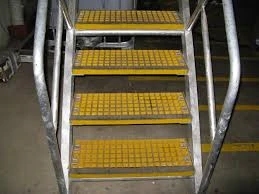
-
 Afrikaans
Afrikaans -
 Albanian
Albanian -
 Amharic
Amharic -
 Arabic
Arabic -
 Armenian
Armenian -
 Azerbaijani
Azerbaijani -
 Basque
Basque -
 Belarusian
Belarusian -
 Bengali
Bengali -
 Bosnian
Bosnian -
 Bulgarian
Bulgarian -
 Catalan
Catalan -
 Cebuano
Cebuano -
 China
China -
 China (Taiwan)
China (Taiwan) -
 Corsican
Corsican -
 Croatian
Croatian -
 Czech
Czech -
 Danish
Danish -
 Dutch
Dutch -
 English
English -
 Esperanto
Esperanto -
 Estonian
Estonian -
 Finnish
Finnish -
 French
French -
 Frisian
Frisian -
 Galician
Galician -
 Georgian
Georgian -
 German
German -
 Greek
Greek -
 Gujarati
Gujarati -
 Haitian Creole
Haitian Creole -
 hausa
hausa -
 hawaiian
hawaiian -
 Hebrew
Hebrew -
 Hindi
Hindi -
 Miao
Miao -
 Hungarian
Hungarian -
 Icelandic
Icelandic -
 igbo
igbo -
 Indonesian
Indonesian -
 irish
irish -
 Italian
Italian -
 Japanese
Japanese -
 Javanese
Javanese -
 Kannada
Kannada -
 kazakh
kazakh -
 Khmer
Khmer -
 Rwandese
Rwandese -
 Korean
Korean -
 Kurdish
Kurdish -
 Kyrgyz
Kyrgyz -
 Lao
Lao -
 Latin
Latin -
 Latvian
Latvian -
 Lithuanian
Lithuanian -
 Luxembourgish
Luxembourgish -
 Macedonian
Macedonian -
 Malgashi
Malgashi -
 Malay
Malay -
 Malayalam
Malayalam -
 Maltese
Maltese -
 Maori
Maori -
 Marathi
Marathi -
 Mongolian
Mongolian -
 Myanmar
Myanmar -
 Nepali
Nepali -
 Norwegian
Norwegian -
 Norwegian
Norwegian -
 Occitan
Occitan -
 Pashto
Pashto -
 Persian
Persian -
 Polish
Polish -
 Portuguese
Portuguese -
 Punjabi
Punjabi -
 Romanian
Romanian -
 Russian
Russian -
 Samoan
Samoan -
 Scottish Gaelic
Scottish Gaelic -
 Serbian
Serbian -
 Sesotho
Sesotho -
 Shona
Shona -
 Sindhi
Sindhi -
 Sinhala
Sinhala -
 Slovak
Slovak -
 Slovenian
Slovenian -
 Somali
Somali -
 Spanish
Spanish -
 Sundanese
Sundanese -
 Swahili
Swahili -
 Swedish
Swedish -
 Tagalog
Tagalog -
 Tajik
Tajik -
 Tamil
Tamil -
 Tatar
Tatar -
 Telugu
Telugu -
 Thai
Thai -
 Turkish
Turkish -
 Turkmen
Turkmen -
 Ukrainian
Ukrainian -
 Urdu
Urdu -
 Uighur
Uighur -
 Uzbek
Uzbek -
 Vietnamese
Vietnamese -
 Welsh
Welsh -
 Bantu
Bantu -
 Yiddish
Yiddish -
 Yoruba
Yoruba -
 Zulu
Zulu
frp field tank
The Role of FRP Field Tanks in Modern Industries
Fiber Reinforced Plastic (FRP) field tanks have emerged as a pivotal solution in various industries, offering a reliable alternative to traditional storage options. Combining durability, corrosion resistance, and lightweight characteristics, FRP field tanks are tailored to meet the demands of a multitude of applications, ranging from wastewater management to chemical storage.
One of the most compelling advantages of FRP tanks is their exceptional resistance to corrosive substances. In environments where chemicals are stored or processed, traditional materials like steel and concrete are prone to degradation over time. FRP tanks, on the other hand, are crafted from a composite of resin and fiberglass, making them immune to rust and corrosion. This attribute not only extends the lifespan of the tanks but also ensures the safety of the materials stored within.
The Role of FRP Field Tanks in Modern Industries
Another significant benefit of FRP field tanks is their superior insulation properties. These tanks can be designed to minimize heat transfer, which is critical in applications requiring temperature control. For instance, when storing chemicals that are sensitive to temperature fluctuations, FRP tanks provide a stable environment, preserving the integrity of the stored substances.
frp field tank

In addition to their functional advantages, FRP field tanks are also customizable. Manufacturers can engineer these tanks to specific dimensions and capacities, catering to the unique requirements of different industries. This flexibility makes them an attractive option for various sectors, including agriculture, oil and gas, and pharmaceuticals.
Sustainability is increasingly influencing industrial choices, and FRP tanks contribute positively in this regard. The production of FRP materials can be more energy-efficient than traditional alternatives, and many manufacturers are now adopting eco-friendly resins to further reduce their environmental impact. Additionally, the longevity and durability of FRP tanks decrease the need for replacement and maintenance, ultimately leading to less waste.
Despite these numerous advantages, it is essential for industries to engage in thorough assessments before selecting FRP tanks for their operations. Factors such as the nature of the chemicals to be stored, environmental conditions, and specific industry regulations must all be considered to ensure optimal performance and safety.
In conclusion, FRP field tanks represent a significant advancement in storage technology, providing solutions that are both efficient and environmentally friendly. As industries continue to evolve and face new challenges, the adoption of innovative materials like FRP will undoubtedly play a crucial role in shaping the future of storage systems. By investing in reliable and resilient solutions, companies can ensure that their operations remain fluid, efficient, and sustainable in an ever-changing landscape.









